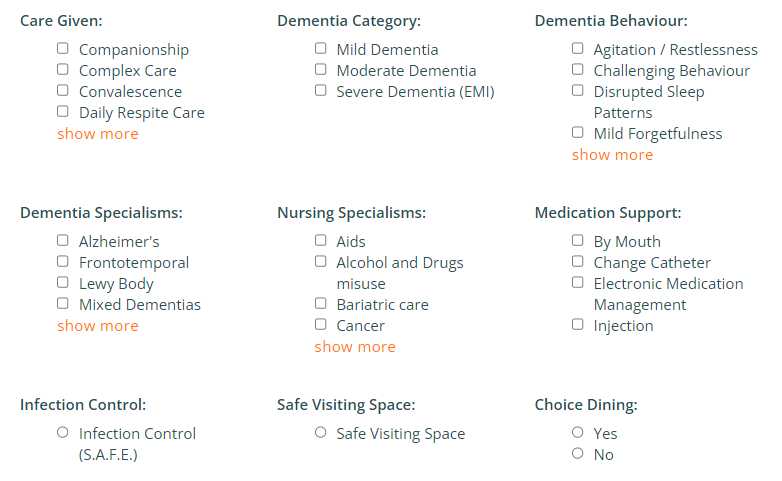Posted by Laura Sheath
Can you get a free care home in Bristol if you have dementia?
This blog explores the process of applying for free social care in Bristol for an older adult with dementia. Lots of people think that a dementia diagnosis automatically entitles a person to free social care funded by the NHS or the local authority in Bristol. Unfortunately, that is not the case.

Who will pay for your care if you have dementia in the Bristol area?
Dementia care isn't free, and you may need to pay for some of the care you or someone you love needs.
There are different ways to pay for care, and the amount you might be expected to pay can differ depending on your circumstances.
Some people will pay for all of their care costs – this is called being a ‘self-funder’.
Most people will pay part of their care costs, with their contribution decided by a financial assessment by the local authority in Bristol.
However, sometimes, a person’s care will be fully funded by their local authority because of their needs.
What’s the threshold to pay for a dementia care home in Bristol?
Social care in the UK is means-tested. If your assets are below the means test limit then you may be entitled to some funding from your local authority. If your assets are above the means test limit then you will have to meet the cost of any personal care yourself unless you’re awarded NHS Continuing Healthcare based on having a primary health need.
The upper capital limit (UCL) in England is £23,250.
Paying for dementia care home fees in Bristol if you’re self-funding
Some older adults with wealth above the threshold have relied on the value of their home to pay for their care.
Fortunately, using a property to pay for care services doesn't always mean selling it.
Equity Release might be an option for you to consider but always seek financial advice before securing debt against a property.
It might also be interesting to talk to a lettings agent to learn whether your property could be let out to pay for care home costs. It’s important to always research the demand in the area as well as the average rental prices for properties similar to yours.
You can read more in our blog on how to avoid selling your house to pay for care.
Part-paying for dementia care home fees in Bristol
If you’re not eligible for NHS Continuing Healthcare, you may feel overwhelmed and unsure about what your options are. In this situation, the local authority can step in and provide care, but unfortunately, that doesn’t mean that social care will be completely free.
The local authority will assess your needs and financial situation through a means test to determine how much you can contribute towards your care. It's important to remember that the local authority may fund some or all of the care depending on the results of the means test.
Full-funded care by the local authority or NHS
If someone is found to be to be eligible for NHS Continuing Healthcare, also known as 'CHC', they will receive comprehensive care coverage, including nursing and accommodation costs, all paid for by the NHS.
This coverage extends to both residential costs and food for individuals in nursing care homes with dementia care.
However, for those receiving NHS Continuing Healthcare in their own homes, social care services will be included in the care package, but other expenses such as rent, utility bills, and food will need to be paid for by the individual.
In some cases, the NHS may provide financial assistance towards utility bills if specialised equipment is needed to meet the individual's needs, which may cause an increase in their bills.
Can someone with dementia get help with nursing care fees if they’re rejected for NHS CHC?
If a person with dementia has complex care requirements because of dementia but they're not eligible for NHS CHC, they may be eligible for NHS-funded nursing care instead.
NHS FNC is a payment from the NHS that goes towards the cost of nursing care.
It’s paid to the care provider rather than the claimant and importantly, it isn’t means tested, so it doesn’t matter how much you earn, you could still be eligible to apply for NHS-funded nursing care if you meet the other criteria.

Apply for NHS funding for a dementia care home in Bristol
NHS Continuing Healthcare is not means-tested, so even if you have savings over the £23,250 threshold, or own a home, you could still be eligible based on your health needs.
That said, a diagnosis of dementia does not automatically qualify you to receive NHS CHC.
If you require care and wish to know whether you are eligible for NHS-funded care in Bristol, the first step is to contact the Bristol Clinical Commissioning Group. You can find the CCG’s contact details at your local GP surgery.
You, or your loved one with dementia, should have your needs assessed by the Clinical Commissioning Group (CCG).
Through assessment, it should be determined whether you have a primary health need or not. If you do, you could be entitled to NHS CHC.
Find dementia-friendly care homes in Bristol
Autumna lists the information you need to compare care homes in Bristol. Use our search directory to filter for care homes by price, dementia specialism, dementia behaviour and so much more.

Where can I get a shortlist of dementia care homes in Bristol?
Finding the right type of dementia nursing care is easy when you ask Autumna. Our shortlisting service is free - we just need your email to send you the list and it takes minutes.
We also have an advice line that can be reached on 01892 335 330 if you’d rather speak to someone about dementia care in the South West.
One of our elder care experts can listen to what you need and provide information about the different ways to pay for dementia care. They can also connect you with suitable care providers in your area.

Receive a Free Care Home Shortlist!
Let our expert team of advisers get your search off to a great start.
Tell us a little about your needs and we'll send you a bespoke shortlist of care homes! Click the button below to begin, it takes just a few minutes.
People also ask
How do I pay for my Mum or Dad’s care fees if they have lost their mental capacity?
Mental capacity is the ability to make certain decisions for yourself. For many people with dementia, there will come a time when they can no longer do this and they are said to ‘lack capacity’.
If a person does lack the capacity to make a decision, someone else will need to decide for them, however, to do this, they need to have a lasting power of attorney (LPA). There are two types of LPA. One covers decisions about a person’s finances and property. The other covers decisions about their health and welfare.
If you have an LPA and your Mum or Dad have not been granted NHS Continuing Healthcare, then it will be up to you to make decisions about how to pay for care fees. You may be able to apply for NHS-funded nursing care which can pay towards the nursing care costs but not food or accommodation.
Other articles to read
From the blog

Paying for Care
How to Pay for Care Home Fees in Edinburgh
May 28th, 2024
Sometimes, it’s possible to avoid care home costs in Scotland. This blog explains how and why, with information to help you whatever the outcome of your care home fee arrangement.

Paying for Care
Can you get a free care home in Bristol if you have dementia?
April 27th, 2024
Lots of people think that a dementia diagnosis automatically entitles a person to free social care funded by the NHS or the local authority in Bristol. Unfortunately, that is not the case.

Paying for Care
Will the NHS pay for your care costs in Bristol?
April 16th, 2024
Read this guide before you pay for your care services or your parent’s care services in Bristol. Financial support for care fees could be available.






